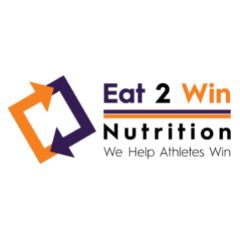Collagen and Athletic Performance for SN 6.0
Sports Nutrition (SN) Symposium 6.0
Tuesday, January 31 @ 12 pm CT
I discussed how loading and nutrition alter collagen synthesis and the stiffness of connective tissues.
Q&A for Session #3
- What types of collagen proteins supplements, type I, II, III?
- No difference, as soon as enters the stomach it is digested into aminos and peptides. Try to makes sure it is skin-based collegen b/c collegen in bones is where all animals store heavy metals.
- Curious about the minimal effective exercise dose to increase the collagen synthesis? (6 min of jump rope needed?)
- Paper published with Jennifer Paxton on this subject. 40 loads is enough to get max stimulation bone accretion rate and wait 6-8 hours before you can stimulate bone to get more. 5-10 minutes of stimulating cells is optimized for tissues, Takes full 6-12 hours to get max. Short bouts of activity, 6-10 minutes is optimized for connective tissues bone, cartilage, and tendons.
- Clients want to be able to put collagen in coffee or tea for convenience...hot but not boiling water re: temperature. Does this amount of heat degrade the C enough to radically decrease the efficacy of the collagen?
- Totally fine to combine but not to put in boiling water due to risk of degradation. So it is helpful to Put powder on your finger and put in your mouth not directly into the boiling water.
- Are collagen supplements often combined with Vit C?
- Yes, typically made with Vitamin C
- Why was the gelatin hydrolysate more effective in stimulating collagen synthesis than isolated amino acids? How can this be explained?
- Hydrolysate is really important as a signal to cell. Similar to when cells are stimulated, by a sugar solution for example, to tell the body we are going to get sugar so now we can release more energy. It is believed that hydroxylysine works in the same way, telling the cells there is going to be more of these amino acids present because the only time you see hydroxylysine is when you have eaten collagen and so the hydroxylysine that you would get in the hydrolyzed gelatin is important for this synthesis.
- What's rfd?
- Rate of Forced Development: a measure of explosive strength, or simply how fast an athlete can develop force.
- Do you have recommendations for athletes who are vegans who refuse to consume collagen?
- Looking for options, the best thing now is to get high glycine content by using soybeans because high in glycine which is an important amino acid. We do see from a lot of sources that vegetarian/vegan athletes with decreased collagen intake we see their risk of injury increases.
- Is the McAlindon study using 10 g per day, or more than once per day?
- Yes 10g per day.
- In someone with joint inflammation (and arthritis) could collage assist with repairing cartilage? If so, how long would supplementation be needed to notice changes/effects?
- Yes, looking to take hydrolyzed collagen in gelatin before you do your loading base. 1 hour before, walking (to keep mobility of joint), you would take collagen with vit c to help mitigate it to some degree.
- What is your opinion that include the collagen in their post-workout shakers and not 1h before?
- Doesn't target as well as pre-workout. Again the goal is to have 30 min to 1 hour before for max effect. For individuals who are not elite/competative athletes, post-workout is fine, if choosing to have after then consistency is important.
- I am hoping to learn protocols I can recommend to my tactical athletes (fire/police). They have varying scheudle and unique stresses. Can you comment on this?
- Ideally wake up and have some vitamin c and collagen every day at the same time in the morning, then train and usual practices and going to havethe positive effect of having collagen in the system.
- Is it true that caffeine affects collagen use? There was a recent paper on this mainly looking at collagen in skin. Is this the same for collagen in tendons?
- In engineered ligaments we reduce collagen synthesis with caffeine. In animal studies, muscle adaptations would be blocked but did not see negative effect regarding collagen. Could only see isolated effect in engineered system.
- With omega 3 and inflammation is there any study combining omega 3 and collagen?
- Not too much with Omega 3's have done many studies with inflammation, what's difficult is if we get rid of inflammation this negatively affects ligaments. To make ligaments stronger we inflame the ligament and decrease the inflammation. Inflammation early on is necessary to fix the small injury. Inflammation is thought to be helpful in reducing further injury.



Facebook comments